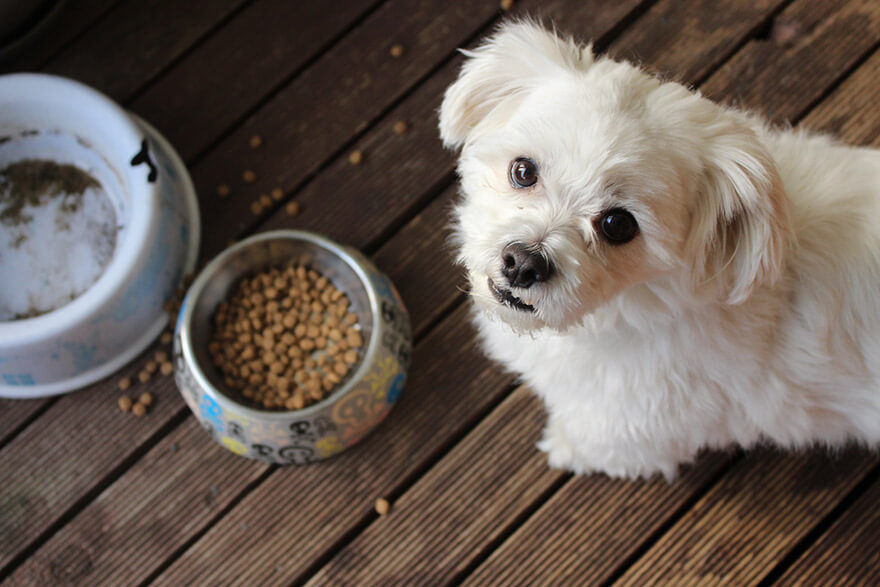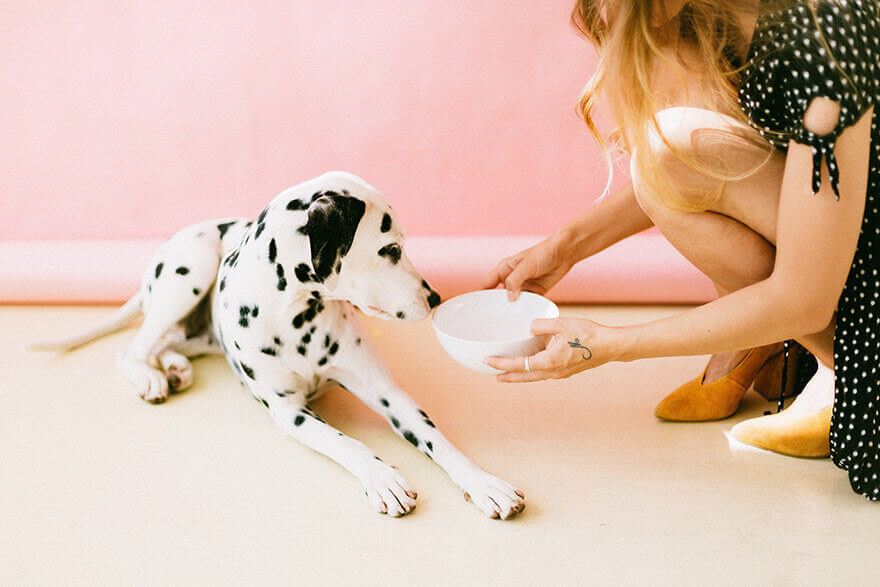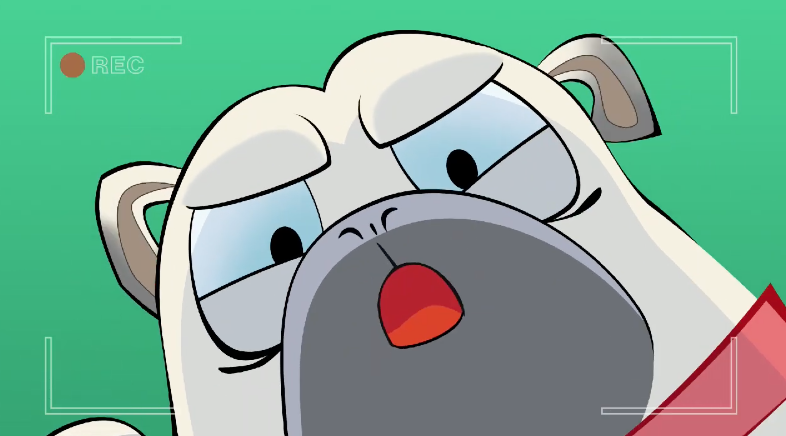

Why Is My Puppy Not Eating?
What are the reasons behind it, what can you do about it and when you should start worrying.

Writer Animalia Team
4 min read

Your new puppy has finally arrived home and you are as excited as ever. You bought top-of-the-shelf puppy food, the softest puppy bed, and even some great toys to play with. But when it’s time for their first meal, you notice something odd. Instead of being eager as expected, your dog seems to show no interest in eating. What are the reasons behind it and when you should start worrying?
Just like humans, dogs too can sometimes lose appetite once in a while, and as long as they skip just a meal or two – it’s probably nothing to worry over. However, suppose your pup is usually eager to dive into a bowl full of food but has suddenly expressed out-of-character appetite loss that lasts longer than two or three meals. In that case, it’s an indicator that your pet may need veterinary attention.

Reasons why puppies refuse to eat
Younger dogs have smaller fat reserves than adult ones, which means that they can’t last without food longer than 12 hours before requiring medical attention. In addition, toy-breed puppies are prone to hypoglycemia (deadly drop in blood sugar) if they skip a meal. This is why it’s vital to keep an eye out for any changes in your dog’s diet or if they’re avoiding meals.
There are several reasons why dogs refuse to eat. Here are some of them:
Pickiness
Perhaps the most common reason for avoiding meals. Sometimes, our pets develop preferences for certain foods and refuse to eat anything else. To solve this problem, try offering your pup various foods, and see if they choose some over others. Various foods have various benefits, so it’s advised to provide your dog with a varied and balanced diet. It would also be wise not to give your pup treats. Younger pups don’t have the eating capacity of larger dogs, so they can easily fill their tummy even with a small treat.
If your dog refuses to eat any of the foods you’ve offered, then the problem might be a bit more complicated.
Anxiety & stress
One reason a dog may refuse to eat is stress. Being left at the kennel, a change in the owner’s work schedule or having unknown guests over, are just some of the reasons a dog might feel stressed, and thus have his appetite suppressed.
Health conditions
With a small pup, it’s essential to keep a close eye on everything- starting with their behavior to their urination and eating habits. If your new pup refuses to eat, it might stem from certain health issues such as:
- Contagious Infections
- Intestinal Parasites
- Urinary Tract Infections
- Vomiting/Diarrhea
- Congenital Issues
Unlike humans, dogs have nonspecific signs when they are going through a health condition, which means that a problem can only be diagnosed by a vet. Make sure to schedule regular appointments.
How to stimulate your puppy’s appetite
There are several methods you can try with your dog at home to stimulate their appetite and hopefully get them back on track:
Offer irresistible meals
Offering foods that will make your puppy eager to eat is a good way to check if your furry friend is just being picky or has a serious health condition. For starters, you can offer your pup some sliver of lean beef or chicken meat – it’s hard to say no to that.
Stimulate appetite with aroma
Puppies have a strong sense of smell, and that’s how they know when something delicious is cooking in the kitchen. They are stimulated by aromas, so you can always try to eager them up for a meal with pungent-smelling foods. Liverwurst and peanut butter are some of their top choices.
Warm-up your pup’s meals
Another great way to stimulate a dog’s appetite is to heat up their food. You can place the dish in the microwave for about 10 seconds, and this will not only make it warm and soft, but it will also unlock the aroma and spike up your pup’s appetite.
Ask for a professional help
If you have tried it all but your pup still shows disinterest in food, maybe it’s time to get your furry friend some professional expert advice.





We offer the most
comprehensive coverage
out there
car with a spare tire for life’s bumps.
Having Animalia is like a pimped-out
Rolls Royce with a swimming pool
in the trunk.



Get your pet insurance quote
Pet type
- Dog
- Cat




